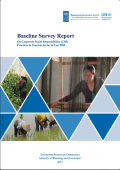
Apart from examining the commitment of Corporate Social Responsibility (CSR) toward the Lao community, this study also looks at their internal processes and treatments towards employees, customers, and suppliers. It focuses on the CSR commitment and operationalization aspect of tourism businesses as well as the challenges they face in implementing CSR and mainstreaming it into their core businesses.
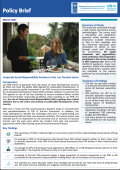
The policy brief presents the key findings of the Baseline Study on Corporate Social Responsibility (CSR) and provides policy recommendations for promoting CSR to government agencies who involving in regulating quality investments.
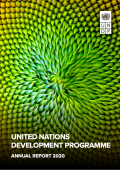
This Report takes a look at the results the United Nations Development Programme (UNDP) achieved with countries and communities through 12 intense months; and features UNDP’s global ideas and research on building forward better.
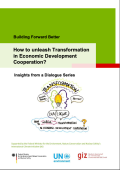
This report summarizes essential statements of the discussions, which are underpinned in the annex with slides on definitions and the impact process by using a visual recording technique. For a more detailed reading of our debate, the co-created digital whiteboard can be consulted upon request.
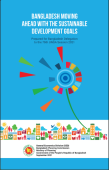
This booklet gives a broad picture of the assessment of progress made under each Sustainable Development Goal (SDG) in Bangladesh. It analyses the importance of multi-stakeholder partnerships for achieving SDGs, means of SDGs implementation, the impact of the COVID-19 pandemic on SDGs implementation, and SDGs localization. Nonetheless, this document does not describe all the SDG indicators. To ensure the succinctness of the report, it only covers those indicators for which the latest data/ information is available.
